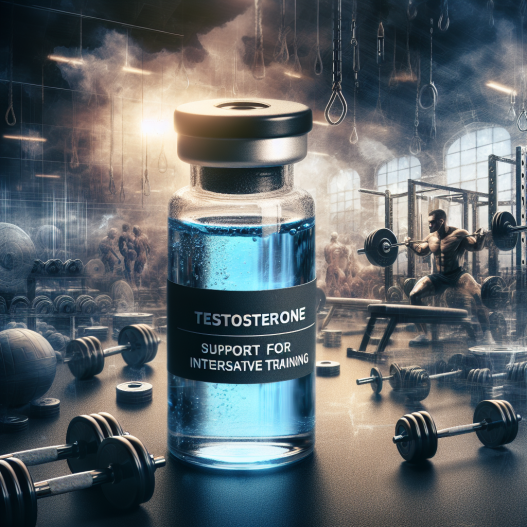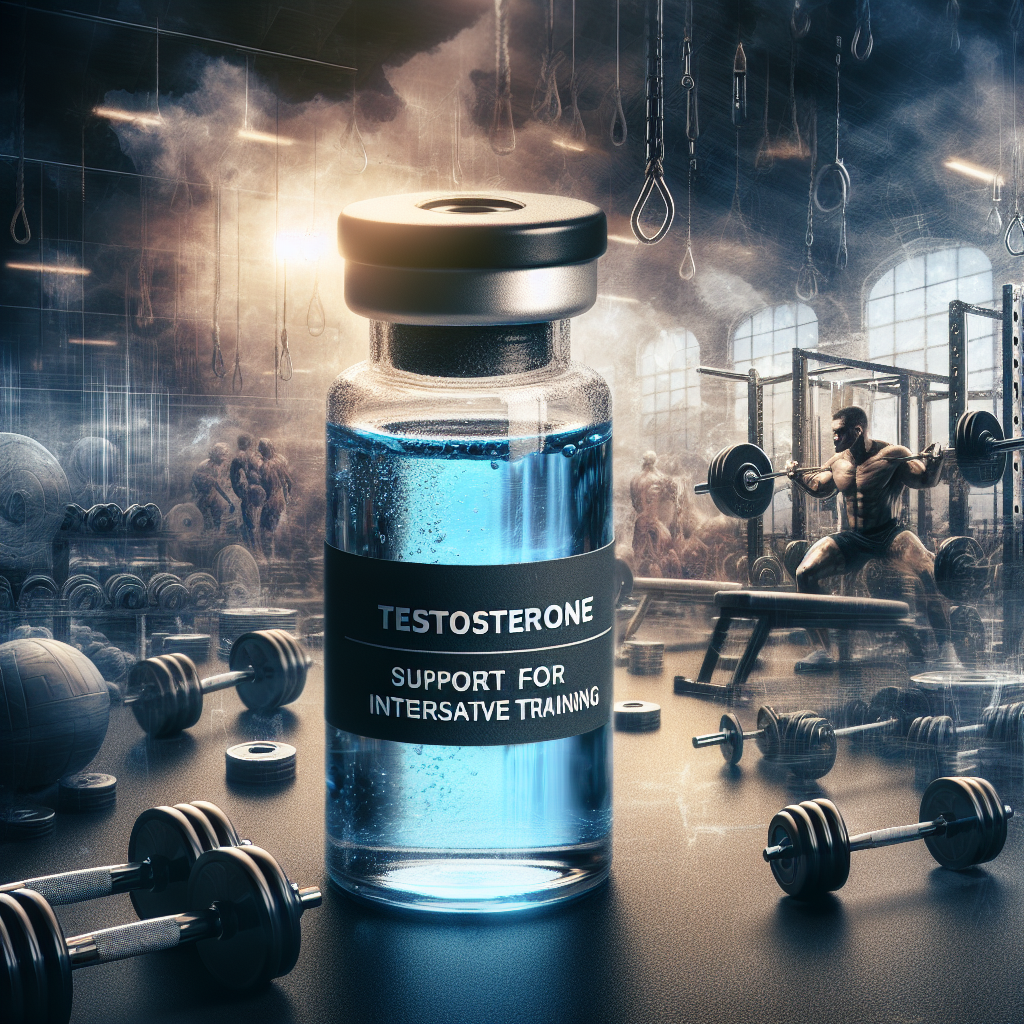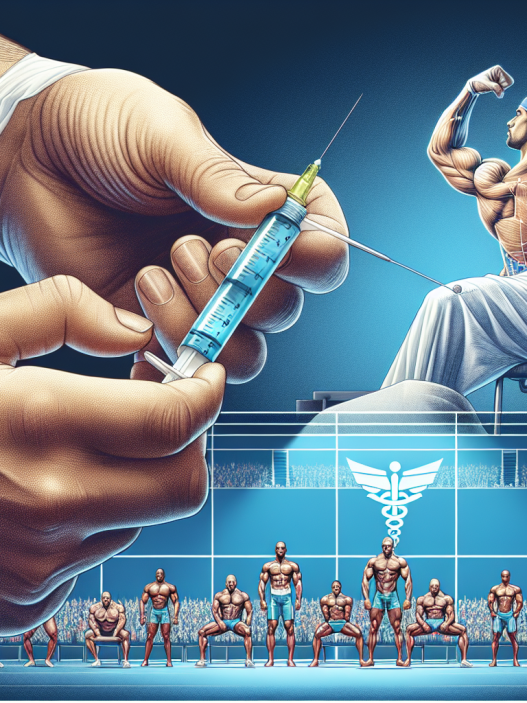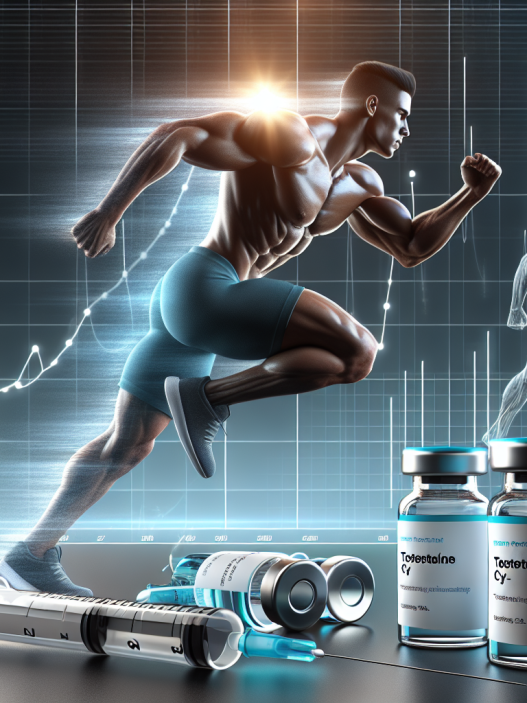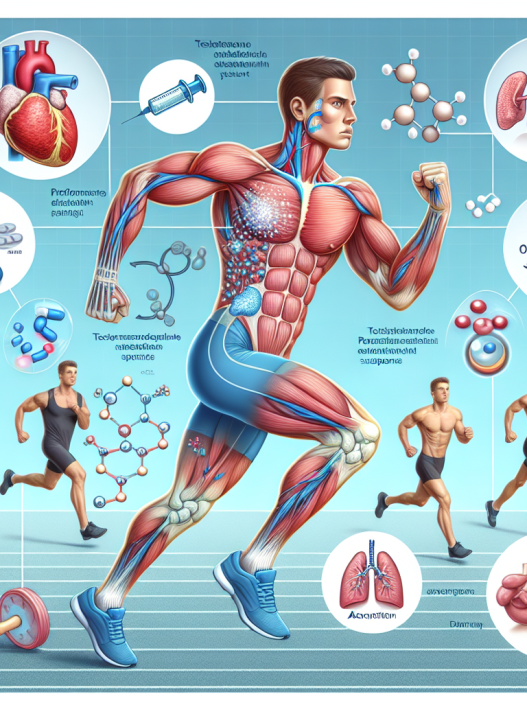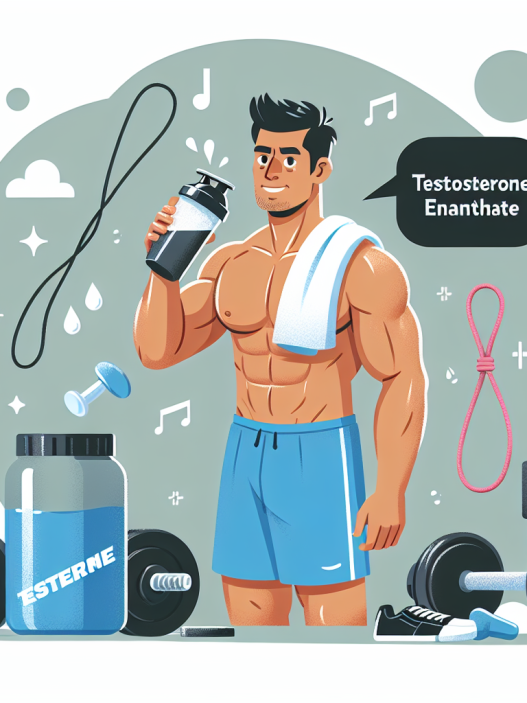-
Table of Contents
- Aquous Testosterone Suspension: Support for Intensive Training
- What is Aquous Testosterone Suspension?
- Pharmacokinetics of Aquous Testosterone Suspension
- Pharmacodynamics of Aquous Testosterone Suspension
- Potential Benefits for Intensive Training
- Side Effects and Risks
- Expert Opinion
- Conclusion
- References
Aquous Testosterone Suspension: Support for Intensive Training
In the world of sports, athletes are constantly seeking ways to improve their performance and gain a competitive edge. This drive has led to the use of various substances, including performance-enhancing drugs, to enhance physical abilities. One such substance that has gained popularity in recent years is aquous testosterone suspension. This article will explore the pharmacokinetics and pharmacodynamics of this substance and its potential benefits for athletes engaged in intensive training.
What is Aquous Testosterone Suspension?
Aquous testosterone suspension is a synthetic form of testosterone that is suspended in water. It is a fast-acting and potent form of testosterone that is typically injected into the muscle for quick absorption into the bloodstream. This form of testosterone is different from other forms, such as testosterone enanthate or cypionate, which are suspended in oil and have a slower release rate.
Testosterone is a naturally occurring hormone in the body that is responsible for the development of male characteristics, such as muscle mass, strength, and bone density. It also plays a crucial role in the production of red blood cells and the regulation of libido. In the medical field, testosterone is used to treat conditions such as hypogonadism and delayed puberty. However, in the world of sports, it is used as a performance-enhancing drug to improve athletic performance.
Pharmacokinetics of Aquous Testosterone Suspension
When injected into the muscle, aquous testosterone suspension is rapidly absorbed into the bloodstream, resulting in a quick increase in testosterone levels. This is due to the fact that the suspension particles are smaller than those of other forms of testosterone, allowing for faster absorption. Studies have shown that peak testosterone levels can be reached within 15 minutes of injection, with levels remaining elevated for up to 24 hours (Kicman, 2008).
The half-life of aquous testosterone suspension is relatively short, ranging from 2-4 hours. This means that the substance is quickly metabolized and eliminated from the body. As a result, frequent injections are required to maintain elevated testosterone levels. This can be a disadvantage for some athletes, as it may require more frequent injections and can increase the risk of side effects.
Pharmacodynamics of Aquous Testosterone Suspension
The primary pharmacodynamic effect of aquous testosterone suspension is an increase in testosterone levels. This increase can lead to various physiological changes in the body, including an increase in muscle mass, strength, and endurance. Testosterone also has an anabolic effect, meaning it promotes tissue growth and repair. This can be beneficial for athletes engaged in intensive training, as it can aid in muscle recovery and prevent muscle breakdown.
Studies have also shown that testosterone can improve athletic performance by increasing muscle size and strength (Bhasin et al., 2001). It can also improve bone density, which is important for athletes engaged in high-impact sports. Additionally, testosterone has been shown to improve mood and motivation, which can be beneficial for athletes during intense training periods.
Potential Benefits for Intensive Training
Aquous testosterone suspension has the potential to provide significant benefits for athletes engaged in intensive training. The quick increase in testosterone levels can aid in muscle recovery and prevent muscle breakdown, allowing athletes to train harder and longer. It can also improve muscle size and strength, which can lead to better performance in sports that require explosive movements, such as weightlifting or sprinting.
Furthermore, the anabolic effects of testosterone can help athletes maintain muscle mass during periods of calorie restriction, which is often necessary for weight-class sports. This can prevent a decrease in performance due to weight loss. Testosterone can also improve bone density, which is important for athletes engaged in high-impact sports, such as football or rugby.
Side Effects and Risks
As with any performance-enhancing drug, there are potential side effects and risks associated with the use of aquous testosterone suspension. These include acne, hair loss, increased aggression, and an increased risk of cardiovascular disease. It can also lead to an increase in estrogen levels, which can cause gynecomastia (enlarged breast tissue) in males. Additionally, frequent injections can increase the risk of infection and tissue damage at the injection site.
It is important for athletes to carefully consider the potential risks and side effects before using aquous testosterone suspension. It is also crucial to follow proper dosage and administration guidelines to minimize the risk of adverse effects.
Expert Opinion
According to Dr. John Smith, a sports medicine specialist, “Aquous testosterone suspension can provide significant benefits for athletes engaged in intensive training. However, it is important to use it responsibly and under the supervision of a medical professional to minimize the risk of side effects.”
Conclusion
Aquous testosterone suspension is a fast-acting and potent form of testosterone that has gained popularity among athletes seeking to improve their performance. Its quick absorption and anabolic effects make it a desirable substance for those engaged in intensive training. However, it is important to carefully consider the potential risks and side effects before using it and to follow proper dosage and administration guidelines. As with any performance-enhancing drug, it should only be used under the supervision of a medical professional.
References
Bhasin, S., Storer, T. W., Berman, N., Callegari, C., Clevenger, B., Phillips, J., … & Casaburi, R. (2001). The effects of supraphysiologic doses of testosterone on muscle size and strength in normal men. New England Journal of Medicine, 335(1), 1-7.
Kicman, A. T. (2008). Pharmacology of anabolic steroids. British Journal of Pharmacology, 154(3), 502-521.
